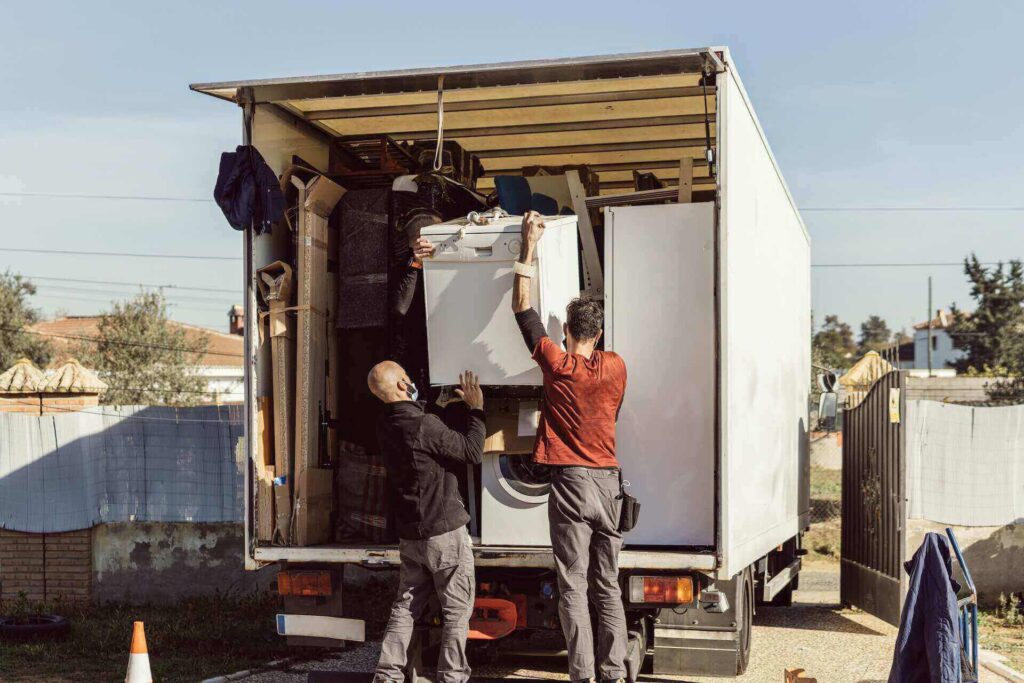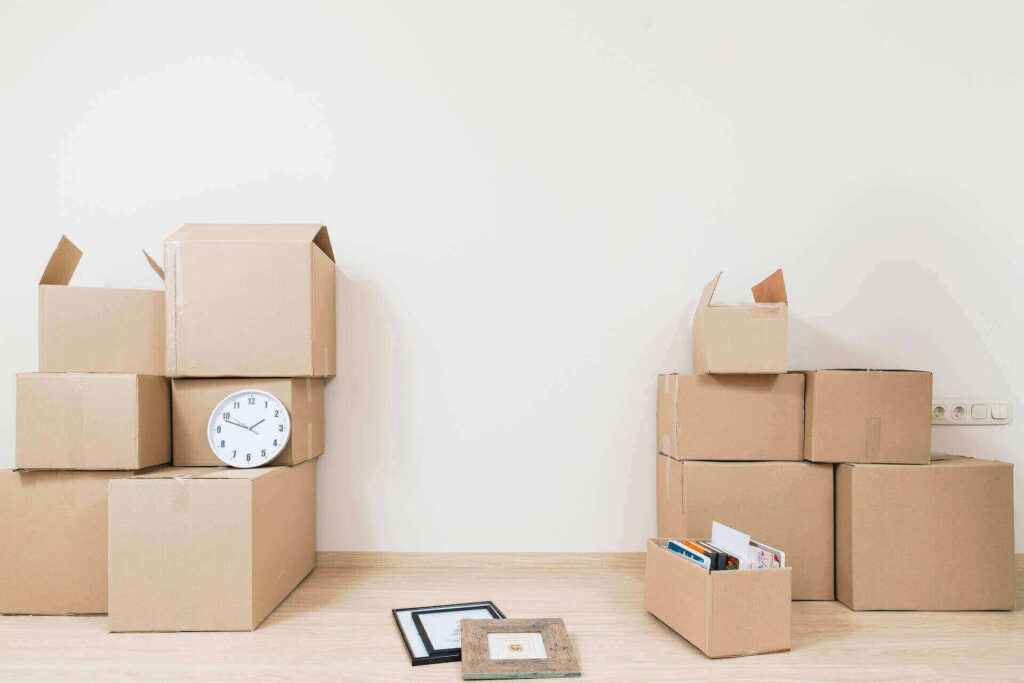Moving internationally can be complicated and expensive. The best way to stay organized and sane during this process is to make a perfect moving budget. Instead of just winging it, you should prepare for your move in advance. It will save you from paying a lot of unnecessary expenses.
The first thing on your relocation to-do list should be to set a moving-out budget. It’s one of the best relocation hacks, and it will ensure you move efficiently. We know you’re full of questions like how much should you budget to move. That’s why we’re here to help you – follow our steps to creating a budget.
How to Make a Moving Budget Checklist
Having a moving out budget is one of the relocation essentials, just as a moving binder is. One of the biggest and most common relocation mistakes people make is they don’t prepare a budget plan for moving out. Mistakes like that can make relocating traumatic. You should have a financial plan. That way, you will always stay right on track and not go bankrupt. Here is our list of things your checklist must contain.

Find the Right Moving Company for You
The most important thing to figure out is which relocation company to hire since that will take up the majority of your relocation expenses. Take some time and do research on which international moving company will best suit your needs. A good rule to follow is to check at least three of them. Ask for company recommendations (it will make it easier to choose a company,) and that way, you can avoid relocation scams.
International moving services can get quite expensive. Depending on whether you’re renting or a homeowner, they can cost anywhere from $1,000 to $10,000, if not more.It also depends on whether you’re relocating over to the next-door state or moving overseas. So, how do you calculate how much it will cost to move? There are three different costs that you pay:
- A base fee – A standard fee that covers fuel and their work. That is a fixed amount you will have to pay no matter how many items you move.
- Extra fees for specific items – Companies charge extra for specialty items. We mean, if you’re planning to move a pool table, expect to pay extra. Do some research and find out what items are considered to be special. Don’t be embarrassed. Feel free to ask movers questions you’re not sure about.
- Insurance fees – A mandatory cost if you want to protect your things. Contact the movers and make a deal for the protection plan. There are different coverage packages. Pick one that you feel the most comfortable with. Things often break or get damaged, be sure you’re protected. Better smart than sorry.
Guaranteed prices for International Moving. No hidden fees or surprises!
Do Your Inventory
All of these fees are different from company to company. They also get higher the more stuff you have. So figure out what you own and what to keep when relocating. One of the best relocating tips out there is to declutter before your move. Get rid of any unnecessary items, sell things online, organize a garage sale, and donate unwanted items. The less stuff you have – the cheaper it will be. Also, keep in mind that there are certain items movers won’t move.
Consider Relocating on Your Own
If you’re interested in how to move on a budget and you can’t afford to hire international movers or packing services, you can do it all on your own. It’s a good way to save a few pennies and not break the bank, but you should know it’s not free. If you do it on your own, you still have to take care of many costs.
You have to rent a truck, pay for the fuel, the driver, packing supplies, and so on. Another disadvantage is that it will take up a lot of your time and energy, especially if you’re not experienced and relocating for the first time. An upside to doing everything by yourself is you are always ready for last-minute relocating.

How Can I Make Moving Cheaper and Save Money?
Are there ways to cut corners when it comes to relocating? No doubt, it will cost you a lot, no matter if you’re doing it by yourself or hiring someone. But there are certain ways you can take a bit of the load off and knock down the price a bit.
Ask for a Relocation Package
If you’re relocating for a job, you have every right to ask your employer to reimburse all of your relocating expenses or at least part of them. Many companies will be upfront and offer you a relocation package, but you can ask for one if they don’t.
Find the Right Time to Move
Believe it or not, even forces of nature can drive the price up. Many people are blissfully unaware that winter is the best time of year to move. Relocating during summer or at the peak of the season will make it more expensive. Also, try to avoid weekends and holidays.
Drive the Truck by Yourself
Instead of hiring a professional driver to steer the truck, do it yourself. Play your favorite music and have fun knowing you have saved a lot of cash. All you need is a driver’s license. It would be great to have someone keep you company, but if you’re relocating abroad alone, think of it as a great adventure and a new experience.
Prepare Ahead for Any Additional, Hidden Costs
As with anything in life, relocating can be unpredictable, so it’s always nice to have an emergency fund. Don’t completely drain out your savings. Leave enough money so that if anything goes wrong, you’re covered. Perhaps you forgot to include the move-out cleaning in your checklist. Planning can only do so much, and unexpected costs can jump out at any second. Maybe you didn’t plan to transfer as much stuff as you have to. Maybe your driver cancels at the last minute, or worse, your truck rental does. You might realize a bit too late that you could use more storage space. This is your security blanket, a fund you hope you will never have to use but one you’re glad to have.
Storage and Packing Supplies
When it comes to packing supplies, make sure you get the right amount. It’s always better to go a little overboard than to lack supplies. Be sure to get enough bubble wrap, boxes, tape, scissors, plastic wrap markers, and any other supplies. Factor in how much you will have to spend on all of that. Keep in mind that you don’t have to pay for the boxes if you plan far enough in advance. Get free boxes from your friends or your work – for every person in the world that needs boxes, there is one that is desperately trying to get rid of them.
Don’t forget to factor in storage costs. They aren’t always necessary, but if you need storage units, they can get a little bit pricey. Don’t pick the first option that pops up. Dig a little deeper, be thorough and check out a few options before deciding. Follow the same rule as you did before – always look at and get estimates from at least three options.

Think About Your Monthly Budget After the Move
Don’t make the mistake of thinking that spending stops after you start unpacking. There are still so many things left for you to do. You have to figure out what is a good monthly budget for you. That budget covers the cost of rent, utilities, all of your bills, groceries, and food and leaves you with some breathing room. Another thing to take into consideration is the fact that different places have different average living expenses. For example, relocating to a big city such as New York is much more expensive than relocating to Austin. Think about how you will manage living in another country with your income.
Post-move expenses also include:
- Home repairs – There is a chance not everything in your new home will be perfect and that it will require some work and home repairs. Hiring professional contractors, painters or repairmen costs a lot. Depending on the amount and type of work they will have to do, those bills could run anywhere from a couple of hundred dollars to thousands of dollars.
- Setting up your utilities – Besides regular household items, another one of the post-move expenses is having to set up utilities. Utilities – electricity, water, gas, TV, and Internet are essentials. When planning the move, call potential service providers and agree on the set-up date.
- Decorating – Fully furnishing an apartment from scratch costs a small fortune, not to mention how much you will have to spend if you’re decorating a house. In most cases, you will end up spending more money on decorating the new place than you did for all the other expenses combined. Buying furniture is a giant expense, but it’s unavoidable.
However, there are tricks you can use to make it cheaper. You can do a lot of things by yourself without hiring an interior designer or a decorator. Repurpose old furniture, take on a DIY project, paint it, reupholster it, and make it look fresh and brand-new again. If you ever run out of inspiration, look at ideas online or flip through Architectural Digest. You don’t have to buy all the furniture at once. Start by purchasing the essentials and keep on adding them throughout the upcoming months. If you want some inspiration for saving old furniture DIY projects, watch this video:
Don’t Be Frugal When Saying Goodbye to People
Since you’re relocating, you should find an appropriate way to notify people you’re leaving. A farewell party is always an excellent choice. Leave the last section of your budget for moving out dedicated to throwing together a fun day with friends and family. It doesn’t have to be crazy lavish and expensive. No one expects a fancy gala dinner.
Throw a simple get-together. It doesn’t even have to be a party. Have a barbecue or watch movies, just have fun with your closest ones. One last day of fun before the big move is exactly what you need to take your mind off the stress of planning the move and spending money. Now it’s time to get excited about your future home.
